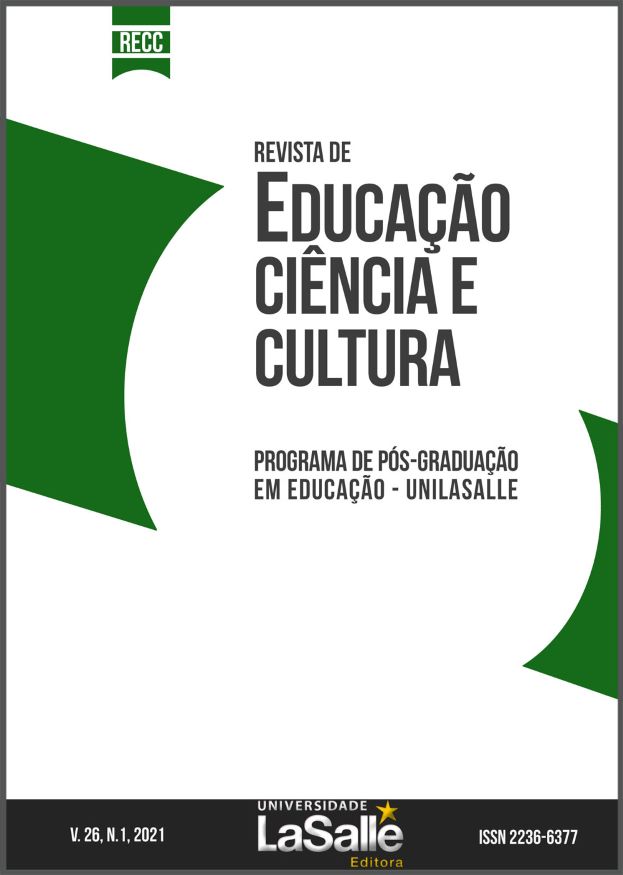Os Corpos e as Corpas que a escola não toca: EJA e as dissidências sexuais e de gênero na perspectiva da formação docente
DOI:
https://doi.org/10.18316/recc.v26i1.7419Palavras-chave:
EJA, Gênero, Sexualidade, Identidade, Currículo.Resumo
Este trabalho objetiva pesquisar-agir, partindo das trajetórias de vida do primeiro autor, através de narrativas confessionais atreladas aos processos constitutivos e formativos que compõem a modalidade de ensino da Educação de Jovens e Adultos – EJA, no Colégio Municipal Alice Fuchs de Almeida, do município de Una, localizado na região Sul da Bahia. A partir desse diálogo entre o pessoal e o profissional, nasceu a proposta de intervenção pedagógica Gênero, Sexualidade e Interseccionalidade, fundamentada em saberes decoloniais, por meio de práticas pedagógicas inovadoras e engajadas, e através da seleção prévia de autoras e autores que partem das cosmologias e epistemologias do oprimido e explorado pela diferença colonial, assegurando, assim, aos profissionais da educação que atuam na EJA, o desenvolvimento integral do potencial humano, de modo a torná-los capazes de garantir o exercício pleno da cidadania aos estudantes integrantes dessa modalidade. Sob essa perspectiva, a metodologia utilizada nessa proposta partiu de um universo de significados que exigiam reflexões e conhecimento sobre o que está posto no currículo escolar e na prática pedagógica. Encontros formativos e ações desenvolvidas nos espaços das Atividades Complementares-ACs foram os ambientes de fomento a essas reflexões e conhecimento. Dessa forma, identificamos como os atos de currículo podem implicar nas representações das sexualidades, de gênero e das identidades étnico-raciais dos corpos e corpas dessa modalidade de ensino, ocasionados pela supremacia hegemônica do homem branco, heterossexual, cristão e de classe interferindo de forma negativa na vida dos estudantes, uma vez que são em sua maioria pessoas que fogem a essa matriz colonial.
Downloads
Publicado
Edição
Seção
Licença
Autores que submetem seus manuscritos para serem publicados nesta revista concordam com os seguintes termos:
Autores mantém os direitos autorais e concedem à revista o direito de primeira publicação, com o trabalho simultaneamente licenciado sob a Licença Creative Commons Attribution que permite o compartilhamento do trabalho com reconhecimento da autoria e publicação inicial nesta revista.
- Em virtude dos artigos aparecerem nesta revista de acesso público, os artigos são de uso gratuito, com atribuições próprias, em aplicações educacionais e não-comerciais.
O Periódico Revista de Educação, Ciência e Cultura em http://www.revistas.unilasalle.edu.br/index.php/Educacao foi licenciada com uma Licença Creative Commons - Atribuição - Uso Não Comercial 3.0 Não Adaptada.


